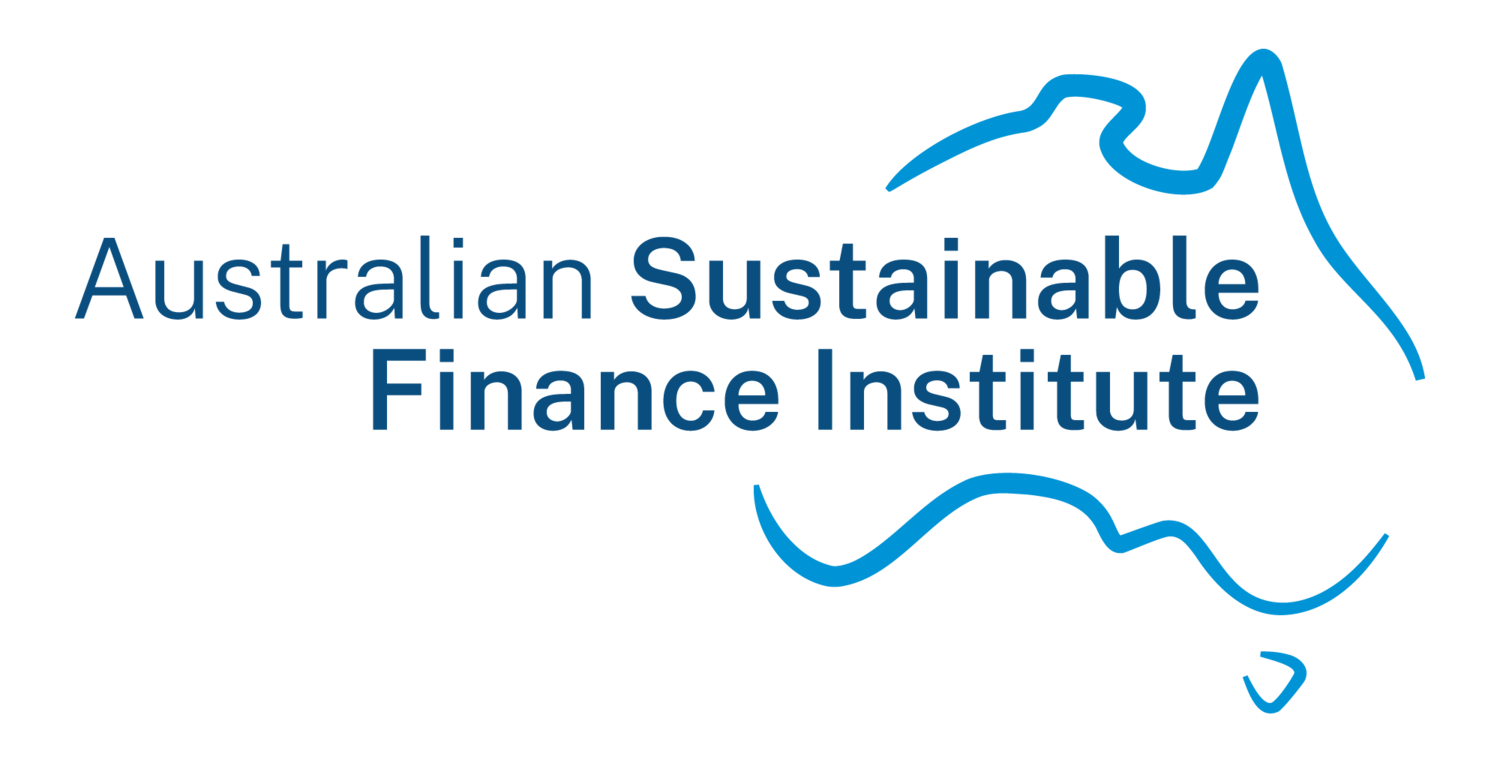Professor Deen Sanders OAM to guide First Nations leadership in sustainable finance
The Australian Sustainable Finance Institute (ASFI), the peak body for Australia’s sustainable finance sector, has appointed Professor Deen Sanders OAM as a Board Advisor and Cultural Governance and First Nations Leadership Advisor.
The appointment reinforces ASFI’s commitment to embedding First Nations leadership, Indigenous Knowledge and economic self- determination for Aboriginal and Torres Strait Islander peoples within Australia’s financial system.
Tyrone Glenbar and Deen Sanders at the ASFI Summit 2025, held in Sydney Town Hall.
Image credit: Cassie Bedford.
A Worimi man and respected cultural leader, Professor Sanders brings more than three decades of experience spanning regulation, professional standards, governance and economic policy. As Lead Partner, Integrity at Deloitte Access Economics, he advised financial institutions, corporates and governments on how trust, ethics and accountability intersect with market performance and sustainable growth.
Professor Sanders’ experience bridges regulatory design, economic insight and systems thinking, bringing Indigenous knowledges and world views to inform systems change. He will provide strategic guidance across ASFI’s workstreams — including public policy, blended finance, standards and practice, leadership and First Nations finance – supporting ASFI’s mission to build a sustainable, resilient and inclusive financial system.
Kristy Graham, Chief Executive Officer at ASFI said the appointment strengthens the institute’s ability to connect finance and policy with culture and community, as Australia accelerates its transition to Net Zero by 2050.
“Professor Sanders brings a rare combination of governance, cultural and economic expertise. His appointment strengthens ASFI’s capacity to deliver practical, credible solutions that support Australia’s transition and long-term prosperity,” Graham said.
“We’re looking forward to working with Deen to bring new approaches and partnerships into our work, turning sustainable finance ambition into practical outcomes that enhance Australia’s competitiveness and resilience.”
ASFI’s Executive Manager for First Nations and Finance Tyrone Glenbar, said Professor Sanders’ appointment reflects the transition toward deeper collaboration between finance and First Nations communities.
“Aboriginal and Torres Strait Islander peoples must be at the forefront of decisions that impact Country. We are not only caring for country and revitalising lore, but also unlocking capital and opportunities that can benefit our regions and the Australian economy more broadly,” said Glenbar.
“Professor Sanders’ leadership will help deepen how finance connects with Nation, community and Country and highlights the constructive role ASFI can play in creating opportunities to embed Aboriginal and Torres Strait Islander peoples’ economic self-determination within Australia’s financial system.”
“I am really excited to be working alongside Deen,” Glenbar continued, “his mentorship and vision are an incredible source. I’m looking forward to learning from him and collaborating on the work we’re driving at ASFI to create meaningful sustainable change in the finance sector for First Peoples together.”
The appointment strengthens ASFI’s commitment under its Reconciliation Action Plan to increase Aboriginal and Torres Strait Islander participation and leadership across the financial system and reflects its broader goal of partnering to mobilise capital for climate, nature and social impact.
Professor Sanders previously served as the inaugural CEO of the Financial Advisor Standards and Ethics Authority (FASEA) and the Professional Standards Authority and was awarded the Order of Australia Medal (OAM) for his contribution to governance, regulation and education. His recent work includes contributing to Deloitte Access Economics’ modelling that underpinned ANZ’s First Nations Strategy (Australia): Fuelling the Fire 2025-2035.
The analysis projected the First Nations economy could generate up to $50 billion in annual revenue within the next decade, reflecting the sector’s rapid growth– expanding by 7.3 per cent over the five years to 2021, with new businesses established at a rate four times the national average.




